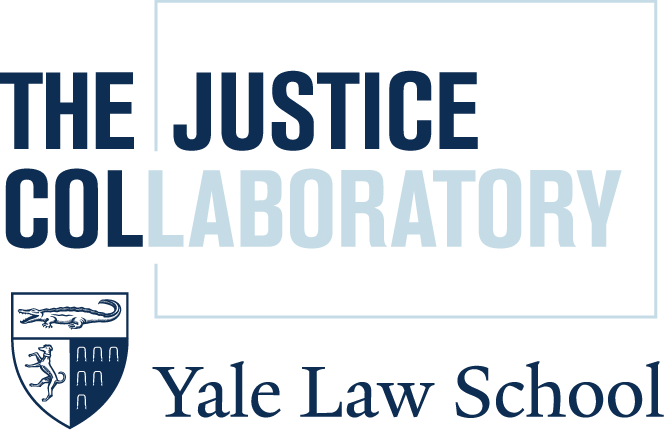Portals Policing Project
Summary
Ferguson, Baltimore, and Chicago, and the surge of collective protests to police violence across the country highlighted the stark contrasts between formal legal empowerment and right to be free from state interference and the daily, lived experience of citizens in poor communities.
Despite the transformation of policing and rising prevalence of encounters with the justice system, current research is ill-suited to help us understand how the Michael Browns of America come to experience the police and state authority more broadly. This important work requires a better way to measure these dynamics across communities. And it requires that we center the voices of the unfree. That we listen. The Portals Policing Project aims to do just that.
The central purpose of this project is to describe and analyze democracy from the ground up.
Approach
What are portals?
Portals are a global public art initiative created by Shared_Studios and Amar Bakshi, the organization’s founder. By transforming a container meant to ship goods to a space for exchanging ideas, he created an immersive space to connect people across the globe. Upon entering a Portal, you’ll come face-to-face with someone in a distant Portal as though you were in the same room.
Each Policing Portal is staffed by a Curator: a member of the community who does outreach and describes the study. Portals are first and foremost a community gathering spot, space for art and performance, and interesting place for all kinds of discussions and collaborations in addition to discussions of policing. Curators hold many informal “pop up” initiatives on the days and times that conversations were not being recorded for our study: poetry slams, running a barbershop, chess tournaments, having community discussions with civic leaders, or dialoguing with global Portals.
Researching portals
Researchers stationed policing portals in highly policed communities across the U.S. In the spring of 2016, they piloted the Portals Policing Project between Milwaukee’s Amani neighborhood and Newark’s Lincoln Park and Military Park. By the spring of 2018, the Project had touched 14 different neighborhoods and six cities—Baltimore, Chicago, Los Angeles, Milwaukee, Newark, and Mexico City.
Portal Process
Participants enter the Portal typically after wandering in out of curiosity or word of mouth. They are connected by life-size video and speak for 20-minutes with someone else that they do not know in a paired city. They also fill out a basic iPad survey consisting of 12 brief questions about their background, including experiences with police and crime victimization.
Portal participants are given a single prompt to discuss police. Through open-ended, free-wheeling conversations, participants can say what they think in their own terms in a way that they couldn’t in most surveys. They’re then invited to reflect on their experience in a Gold Book.
After collecting the Portals dialogues and transcribing them, the research team worked together to code and analyze Portals transcripts and surveys. In addition to coding, they conducted site visits, interviewed Portals Curators, and researched neighborhoods and local policing regimes.
Publications
Overall, the research has shown that (1) policing is central to the ways in which race-class subjugated communities understand and participate in politics, and (2) we can learn by activating political connections.
Publications are located at here.
The State from Below: Distorted Responsiveness in Policed Communities, Urban Affairs Review
Too Much Knowledge, Too Little Power: An Assessment of Political Knowledge in Highly-Policed Communities, The Journal of Politics
Withdrawing or Drawing In? Political Discourse in Policed Communities, The Journal of Race, Ethnicity, and Politics
Funding
The Portals Policing Project was made possible thanks to Carnegie and MacArthur Foundation support and funding.
Researchers
Vesla Weaver
Principal Researcher
Dr. Weaver is the Bloomberg Distinguished Associate Professor of Political Science and Sociology at Johns Hopkins University
Tracey Meares
Principal Researcher
Professor Meares is the Walton Hale Hamilton Professor and a Founding Director of the Justice Collaboratory at Yale Law School.
Gwen Prowse
Principal Researcher
Prowse is a joint doctoral student in political science and African American studies, with a focus on race and political economy in the United States. She is a research fellow with the Institute for Social Policy Studies (ISPS) and affiliated with the Justice Collaboratory at Yale Law School.
Demar Lewis
Research Assistant
Lewis is a PhD student in the Departments of Sociology and African American Studies at Yale University.
Sara Erickson
Research Assistant
Erickson holds an MA in Material and Visual Culture through University College London’s Anthropology Department.
Quinn Seau
Research Assistant
Seau is a member of the 2020 graduating class at Johns Hopkins University, majoring in Public Health Studies. He joined the Portals Policing Project team through the Bloomberg Distinguished Professors Summer Undergraduate Research Program.
Sophia-Rose Diodati
Research Assistant
Diodati is recent graduate of Johns Hopkins University holding a B.A. in Medicine, Science, & Humanities and Anthropology.
